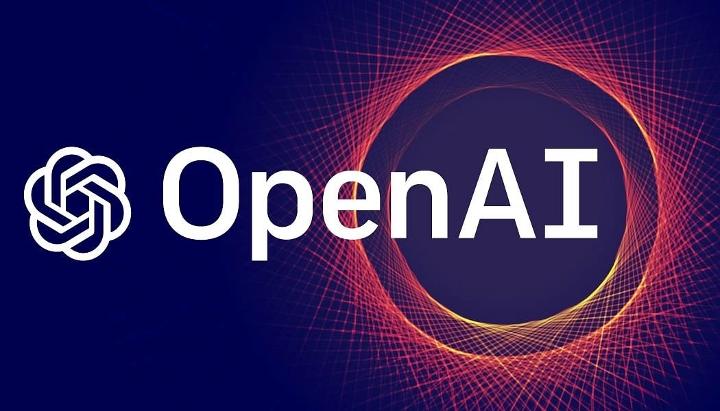How Does Open AI Integration Supercharge Productivity?
Have you ever wondered how some businesses seem to have endless productivity? How do they manage to get so much done in such a short amount of time? The answer may lie in open AI integration and generative AI integration.
AI integration has been on the rise in recent years, with businesses looking for ways to streamline their processes and increase productivity. Open AI integration and generative AI integration are two methods that have been gaining popularity, and for good reason.
By integrating AI into their workflows, businesses are able to automate repetitive tasks, make better decisions, and ultimately boost their productivity. In this article, we’ll explore how open AI integration and generative AI integration can supercharge productivity and take your business to the next level.
Open AI: All About It
Open AI is a research organization that aims to create advanced artificial intelligence technologies that can be used for the betterment of humanity. The company was founded in 2015 by a group of tech luminaries, including Elon Musk, Sam Altman, and Greg Brockman.
One of the key focuses of Open AI is the integration of AI into various industries, including healthcare, finance, and transportation. The company has developed a range of tools and platforms that can be used to integrate AI into existing systems, making it easier for businesses to take advantage of the benefits of AI without having to start from scratch.
One of the most exciting developments from Open AI is the integration of generative AI into various industries. Generative AI is a type of machine learning that involves creating new data from existing data. This technology has vast potential in a range of industries, including creative fields such as art and music, as well as more practical applications such as drug discovery and scientific research.
Open AI has already made significant progress in the field of generative AI, with the development of its GPT-3 language model. This model is able to generate human-like text that is often indistinguishable from text written by a human. This technology has the potential to revolutionize the field of content creation, as it can be used to generate high-quality content at scale.
In addition to its work on generative AI, Open AI is also working on a range of other AI technologies, including reinforcement learning and natural language processing. These technologies have applications in fields such as robotics, autonomous vehicles, and customer service.
Open AI has also made significant contributions to the field of AI ethics. The company has been instrumental in raising awareness about the potential dangers of advanced AI technologies and has advocated for the development of responsible AI practices that prioritize the safety and well-being of humanity.
Overall, Open AI is a key player in the development of advanced AI technologies that have the potential to transform a range of industries. With its focus on generative AI and its commitment to ethical AI practices, the company is well-positioned to lead the way in the development of safe and beneficial AI technologies.

Can Open AI Assist All Businesses?
With the aim to create safe and beneficial AI that can be integrated into various industries, Open AI has the potential to assist all businesses. However, the extent to which Open AI can assist businesses depends on the level of Open AI integration and generative AI integration that a business is willing to undertake.
Open AI integration involves utilizing Open AI’s existing models and algorithms to improve business operations. For example, businesses can use Open AI’s language models to automate customer service responses, reducing the need for human customer service representatives and saving time and money. Open AI algorithms can also be used for predictive analytics, enabling businesses to make informed decisions based on data analysis.
Generative AI integration, on the other hand, involves creating new AI models and algorithms specific to a business’s needs. This requires a greater level of investment and expertise but can result in significant benefits. For instance, generative AI can be used to create personalized products or services based on customer preferences, leading to increased customer satisfaction and loyalty.
While Open AI integration and generative AI integration have the potential to assist all businesses, the level of integration required will vary depending on the industry and business size. Larger businesses with greater resources may be able to undertake generative AI integration, while smaller businesses may only be able to utilize Open AI integration.
Moreover, businesses in certain industries may benefit more from Open AI integration and generative AI integration than others. For example, healthcare businesses may use Open AI models to improve patient outcomes by predicting potential health risks and providing personalized treatment plans. Likewise, manufacturing businesses can use generative AI to optimize production processes and reduce waste.
So, Open AI has the potential to assist all businesses, but the extent of that assistance will depend on the level of Open AI integration and generative AI integration that a business is willing and able to undertake. Nonetheless, as Open AI continues to develop and refine its technology, it is likely that more businesses will find ways to utilize its benefits.
Upgrade your system with OpenAI: Don’t miss out on the advantages of AI. Integrate OpenAI into your existing infrastructure and harness the power of automation, analytics, and personalized experiences.
Ways Open AI Integration Can Supercharge Productivity
Below are the ways Open AI can supercharge productivity in every business sector. Check it out:

| About Author
Rajesh R
A seasoned IT Integrations and ERP Solution Architect boasts over a decade's expertise in revolutionizing business processes through cloud-based ERP and MIS software solutions. Proficient in leveraging avant-garde technologies such as Blockchain, Al, IoT, etc in crafting bespoke software solutions. His extensive background encompasses tailor-made software solutions across diverse industries like Sales, Manufacturing, Food Processing, Warehouse Operations→ and B2B Businesses. Rajesh excels in engineering and deploying enterprise-grade business software, playing a pivotal role in Business Solution Consulting and designing intricate software solution architectures for many Fortune 500 enterprises.
Schedule Consultation with Rajesh